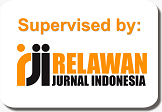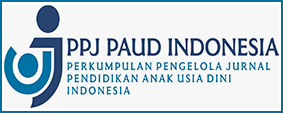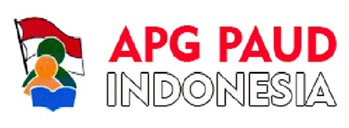PSIKOLOGI PERKEMBANGAN PERIODE PRANATAL
(MASA KEHAMILAN)
Abstract
This study aims to determine the importance of the prenatal or pregnancy period for the growth and development of individuals in the future, based on a developmental psychology approach. Based on the results of the study, it was concluded that the prenatal period is an important period because in this period basic things are formed, such as genetic innate traits, gender, position of the order of children, and number of children. In addition there are things that must be considered during the prenatal period such as nutrition and maternal health, vitamins, rhesus, drugs, alcohol, cigarettes or tobacco, x-rays, as well as maternal emotions during pregnancy. The psychology of the development of the prenatal period provides an overview of special characteristics, important conditions, and things that need to be considered during the prenatal period so that relevant parties can support the creation of a posivite environment for pregnant women and the fetus in the womb
References
Hasanah, N. M., Fahmi A, D., & Febri H, A. (2020). Perkembangan Kognitif, Fisik, dan Emosi Sosial Pada Masa Prenatal. Wisdom: Jurnal Pendidikan Anak Usia Dini, 1(2), 22–43. https://doi.org/https://doi.org/10.21154/wisdom.v1i2.2320
Hurlock, E. B. (2002). Psikologi Perkembangan: Suatu Pendekatan Sepanjang Rentang Kehidupan (5th Editio). Erlangga.
Indrajati, H. (2017). Perkembangan dan Pendidikan Masa Pranatal: Mendidik Anak Sejak dalam Kandungan melalui Stimulasi Prenatal. KENCANA. http://118.98.227.122/libdikbud/index.php?p=show_detail&id=40122
Indrijati, H. (2017). Perkembangan dan Pendidikan Masa Prenatal: Mendidik Anak Sejak dalam Kandungan melalui Stimulasi Prenatal. In Psikologi Perkembangan dan Pendidikan Anak Usia Dini (p. 240). KENCANA.
Irma, C. N., Nisa, K., & Sururiyah, S. K. (2019). Keterlibatan Orang Tua dalam Pendidikan Anak Usia Dini di TK Masyothoh 1 Purworejo. Jurnal Obsesi : Jurnal Pendidikan Anak Usia Dini, 3(1), 214–224. https://doi.org/10.31004/obsesi.v3i1.152
Kambali, K. (2018). Pertumbuhan dan Perkembangan Emosional serta Intelektual di Masa Prenatal. Risâlah, Jurnal Pendidikan Dan Studi Islam, 4(2, Sept), 129–148. https://doi.org/10.5281/zenodo.3555419
Khasanah, U., Fitriyani, F., & Khanifah, M. (2014). Pengetahuan Ibu Hamil tentang Stimulasi Perkembangan Janin. Jurnal Ilmiah Kesehatan, 6(1), 96689.
Rozalina, E. (2017). Gambaran Pengetahuan Ibu Hamil tentang Pendidikan Anak dalam Kandungan di Puskesmas Prambanan Sleman Yogyakarta. In Skripsi (Vol. 87, Issue 1,2).
Santrock, J. W. (2008). Masa Perkembangan Anak. Salemba Humanika.
Setyaningsih, M. M. (2017). Analisa Pengaruh Stimulasi Janin terhadap Temperamen Bayi (Suatu Penelitian Retrospektif pada Bayi Berusia 2-3 Bulan). Jurnal Keperawatan Malang (JKM), 2(1), 8–17.
Sunariyadi, N. S., & Yuni Andari, I. A. M. (2021). Implikasi Pola Asuh Orang Tua Dalam Penumbuhkembangan Karakter Anak Usia Dini. Kumarottama: Jurnal Pendidikan Anak Usia Dini, 1(1), 49–60. https://doi.org/10.53977/kumarottama.v1i1.266
Ulfa, M., & Na’imah. (2020). Peran Keluarga dalam Konsep Psikologi Perkembangan Anak Usia Dini. Aulad : Journal on Early Childhood, 3(1), 14–19. https://doi.org/10.31004/aulad.v3i1.46
Wiguna, I. B. A. A. (2020). Pola Asuh dalam Penumbuhkembangan Karakter Toleransi Anak Usia Dini di Lingkungan Minoritas. Prosiding STHD Klaten Jawa Tengah.
Wiresti, R. D., & Na’imah, N. (2020). Aspek Perkembangan Anak : Urgensitas Ditinjau dalam Paradigma Psikologi Perkembangan Anak. Aulad : Journal on Early Childhood, 3(1), 36–44. https://doi.org/10.31004/aulad.v3i1.53

This work is licensed under a Creative Commons Attribution-ShareAlike 4.0 International License.
Authors who publish with this journal agree to the following terms:
- Authors retain copyright and grant the journal right of first publication with the work simultaneously licensed under a Creative Commons Attribution-ShareAlike 4.0 International License that allows others to share the work with an acknowledgement of the works authorship and initial publication in this journal.
- Authors are able to enter into separate, additional contractual arrangements for the non-exclusive distribution of the journals published version of the work (e.g., post it to an institutional repository or publish it in a book), with an acknowledgement of its initial publication in this journal.
- Authors are permitted and encouraged to post their work online (e.g., in institutional repositories or on their website) prior to and during the submission process, as it can lead to productive exchanges, as well as earlier and greater citation of published work (See The Effect of Open Access).











.png)








